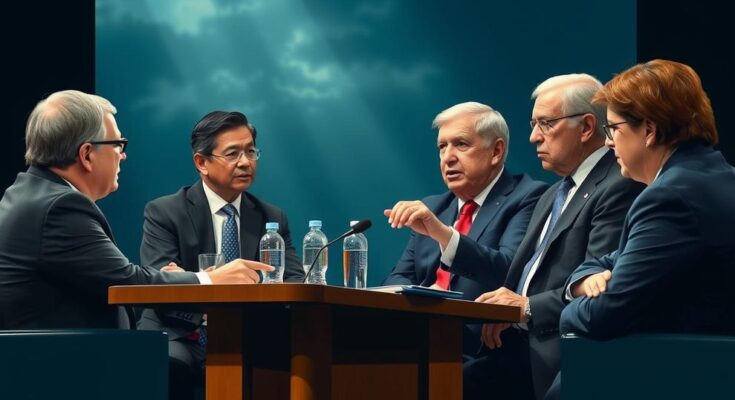The election of Donald Trump as President raises concerns about the future of U.S. commitments to climate initiatives. His prior withdrawal from the Paris Agreement and promotion of fossil fuels may undermine global climate efforts, limiting international collaboration. However, the global movement towards clean energy may endure, resisting opposition and fostering continued climate action.
In the context of global climate policy, the United States plays a critical role as the leading historical emitter of greenhouse gases and a major participant in international negotiations. With the recent election of Donald Trump as the 47th President, the future of climate commitments appears uncertain. During his first term, Trump exhibited significant skepticism toward climate science, famously dismissing climate change as a “hoax” and withdrawing the U.S. from the Paris Agreement. If Trump continues along this path during his second presidency, his actions may threaten international climate initiatives and the collective global response to climate change. Following his withdrawal from the Paris Agreement, Trump asserted that it imposed overwhelming financial burdens on the U.S. This stance promotes an isolationist approach that not only hinders participation in international climate discussions but also could encourage other nations to reconsider their commitments to the accord. Consequently, this could trigger a domino effect, diminishing global readiness to confront climate change collaboratively. Trump’s administration previously favored fossil fuel production through deregulation and expansion of drilling activities. A second term for Trump may bolster these policies, which could increase greenhouse gas emissions and disrupt progress toward renewable energy resources. His statements on the U.S. possessing abundant oil and gas reserves emphasize this focus on fossil fuels, further complicating efforts to adhere to the Paris Agreement’s climate targets. Additionally, funding for domestic climate research and international climate aid may face significant cuts under Trump. His prior administration proposed severe reductions in climate science funding, which is essential for developing nations that need support to implement adaptation measures and transition to renewable energy sources. A lack of U.S. leadership in climate policy could create a vacuum in global political will, causing other nations to hesitate in pursuing ambitious climate actions. Despite the challenges posed by a potential second Trump presidency, it is crucial to acknowledge that the global movement toward clean energy will persist. The rules-based global order will remain, and international cooperation on climate initiatives may extend beyond any one leader. This resilience could mitigate the potential negative impacts of U.S. policy shifts under Trump, fostering a more energized climate movement worldwide.
Global climate policy is integral to mitigating climate change, with the United States having a significant influence due to its substantial historical contributions to greenhouse gas emissions. The Paris Agreement serves as the backbone of international climate commitments, necessitating collaborative efforts among nations to limit global temperature rises. However, the leadership style of President Trump during his first term raised alarms internationally, especially concerning his dismissal of established climate science and withdrawal from vital agreements, prompting concerns about the future of collective action against climate change as his second term looms.
In summary, Donald Trump’s potential return to the presidency poses serious risks to international climate agreements and efforts to transition to renewable energy. His history of skepticism toward climate initiatives and fossil fuel promotion undermines global cooperation essential for combating climate change. Nevertheless, the resilience of the climate movement and ongoing international efforts may help mitigate these repercussions, emphasizing the collective commitment to addressing the climate crisis regardless of U.S. leadership.
Original Source: www.manilatimes.net




